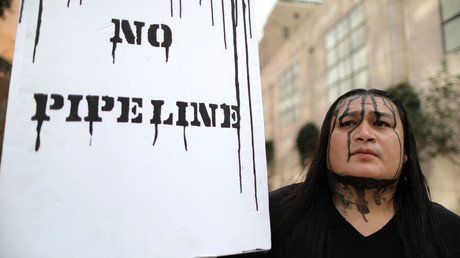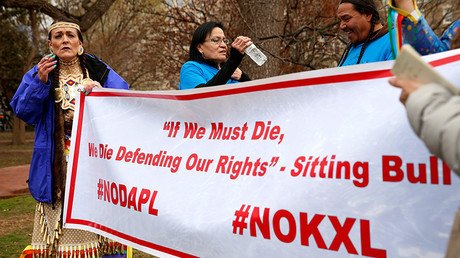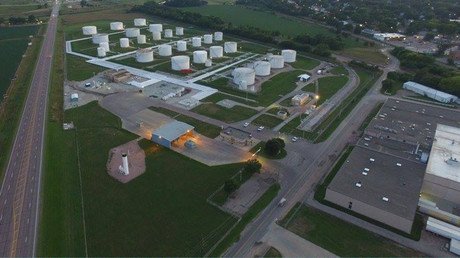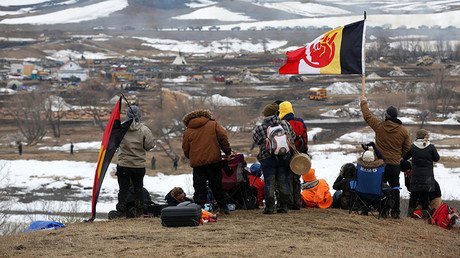US, Canada tribes to sign declaration against Keystone XL
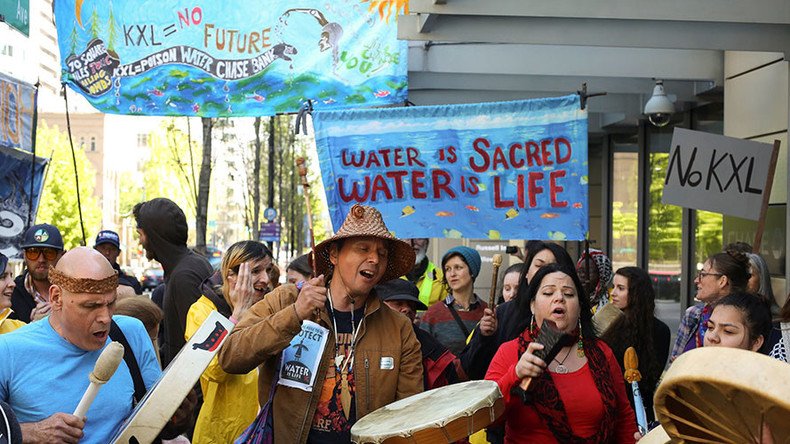
North American tribes are uniting to declare their opposition to the planned Keystone XL pipeline following President Trump administration's approval of the once-suspended project. The 1,700-mile line will help carry tar sands oil from Alberta to Texas.
The Blackfoot Confederacy in Canada and the Great Sioux Nation and Ponca tribe in the US are set to sign their "Declaration Opposing Oil Sands Expansion and the Construction of the Keystone-XL Pipeline" on Wednesday at the Glenbow Museum in Calgary, Alberta, home of Keystone XL developer TransCanada Corp., AP reported.
"This is a new chapter in the old story of Manifest Destiny. Greed knows no limits, and those in the way are simply collateral damage to corporate profits,"said Chairman Brandon Sazue of the Crow Creek Sioux tribe, according to Native News Online.
The declaration will outline tribal treaty rights and the tribes' opposition to the Keystone XL, which would connect existing pipeline infrastructure in the US to Canadian tar sands. The 16-page document will also highlight the pipeline, its big money donors and US government interests.
Tomorrow, Tribes will take historic action against the Keystone XL pipeline #NoKXLhttps://t.co/0OEluragXC
— Sierra Club (@SierraClub) May 16, 2017
"There is a historic union between first Americans in Canada and Native Americans in the United States," said Casey Camp-Horinek, a councilwoman with the Ponca tribe, according to AP. "Long before a border ever existed on a map, a fictitious line on a map, we were a united peoples in our approach to care of Mother Earth."
The tribes may send their declaration to the United Nations and are considering setting up protest camps along the Keystone XL's path, according to Camp-Horinek, who added that the tribe's actions may look similar to the opposition levied against the Dakota Access Pipeline in 2016.
"There will be that kind of resistance" to Keystone XL, Camp-Horinek said. "Those thoughts are in place, where those camps will be best suited."
The Dakota Access Pipeline became a magnet for protesters, who, led by the Standing Rock Sioux tribe, set up camps near the confluence of the Missouri and Cannonball Rivers in North Dakota to defend indigenous rights and environmental protection. Demonstrators were met with at times fierce state repression marked my heavily-armed, militarized police forces.
United Nations officials have condemned how the Dakota Access Pipeline was constructed and the aggressive police response to demonstrators.
TransCanada said the Keystone XL will create jobs while maintaining environmental safety.
"We understand and respect that there are some who might have different views about this project," spokeswoman Jacquelynn Benson said. "TransCanada is always interested in the views of our stakeholders along the right of way."
After much of the construction of the Keystone XL had been completed, the Barack Obama administration halted the project in 2015. Upon taking office, Trump quickly reversed that order, as well as a similar obstacles to the Dakota Access Pipeline put in place by the Obama administration.
In March, the Trump administration issued new permits for TransCanada.
Upon Trump's actions to revive the pipeline, TransCanada suspended its $15 billion lawsuit, based on provision of the North American Free Trade Agreement, that challenged the Obama administration's rejection.
The $8 billion Keystone XL project still faces a challenge in federal court over permitting, as environmental opposition has called for further study of the pipeline's impact. In addition, TransCanada must secure permits from states like Nebraska.
